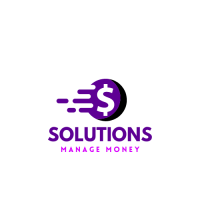Investing could be an almost impossible challenge, especially for somebody who does not enjoy taking high risks as in gambling. But here’s the thing: not all investing has to be stressful. If you want to grow your funds ,turn to low risk and low volativity investment funds and you could get the results you needs.
In 2024, there are plenty of safe ways to invest your hard-earned cash while still earning a decent return. Whether you’re saving for retirement, building an emergency fund, or just looking for a safe place to park your money, we’ve rounded up the best low-risk investments for the year ahead.

1. High-Yield Savings Accounts
t is perhaps best to start with the simplest and the safest option – high yield savings accounts. These are similar to normal saving accounts but not quite. Numerous online banks provide far more favorable interest rates than conventional banks, which is optimal for those who would like to keep their funds fairly liquid but earn a little more on them.
- Why it’s great: Your money is always available, and it’s FDIC-insured up to $250,000, meaning it’s safe from bank failures.
- The catch: The returns won’t make you rich, but for zero risk, it’s hard to beat.
Best for: People who want a totally safe, easy place to store their emergency fund or short-term savings.
2. Certificates of Deposit (CDs)
If you don’t need immediate access to your cash, Certificates of Deposit (CDs) are a great way to lock in a guaranteed return. With a CD, you agree to leave your money in the bank for a set period (like 6 months or a few years) in exchange for a fixed interest rate. The longer the term, the higher the rate.
- Why it’s great: It’s predictable. You know exactly how much you’ll make.
- The catch: You can’t touch your money without paying a penalty before the term is up.
Best for: Anyone with cash they don’t need right away and who wants a guaranteed return.
3. Treasury Bonds
U.S. Treasury Bonds are about as safe as it gets. Backed by the U.S. government, these bonds pay you interest over a period of 10 to 30 years. While the returns aren’t sky-high, they’re reliable and low-risk.
- Why it’s great: These bonds are backed by the full faith and credit of the U.S. government, so your risk is close to zero.
- The catch: The returns are pretty modest, especially when interest rates are low, and you’ll need to commit for a long time.
Best for: Investors who want to play it super safe and don’t mind locking up their money for a while.
4. Money Market Accounts
Money market accounts are a sweet spot between a savings account and a checking account. They offer higher interest rates than regular savings accounts, and you can usually write checks or use a debit card with them.
- Why it’s great: You get decent returns and the flexibility to access your money when you need it.
- The catch: You’ll often need a higher minimum balance to avoid fees, and returns, while better than savings accounts, aren’t spectacular.
Best for: Savers who want more flexibility than a CD but are still looking for safety.
5. Treasury Inflation-Protected Securities (TIPS)
Worried about inflation eating away at your savings? TIPS are government bonds that are designed to protect you from inflation. As inflation rises, the value of your investment adjusts, so you don’t lose purchasing power.
- Why it’s great: TIPS protect your money from inflation, which is a big deal when prices are rising.
- The catch: You won’t get huge returns, especially if inflation is low, and the interest rate is usually lower than standard Treasury bonds.
Best for: Investors who are concerned about inflation eroding their savings.
6. Municipal Bonds
Last but certainly not least, if seeking a tax efficient way to invest then municipal bonds are worth looking at. A local or state government issues these types of bonds to raise capital for local public projects such as schools, infrastructure, roads, or hospitals. What is the best part? This interest that you earn is in most cases tax-free especially if you reside within the state in which that bond was issued.
- Why it is great: Tax benefits make these bonds an appreciable position for higher rate taxpayers.
- The catch: Compared to corporate bonds or stocks, the returns are relatively low and there is a small possibility of risk if the municipality that issued them runs into financial difficulties.
Best for: Investors looking for more income but especially those in higher tax brackets who want tax-free incomes.
7. Dividend-Rewarding Companies’ stocks
You may want to consider dividend stocks if you wish to go a little further into the world of investments but do not feel like risking a lot. These stocks are in companies that distribute a portion of their earnings to shareholders on a quarterly basis. Most of the time, they are mature businesses with consistent earnings.
Why is it good? Earning dividend rewards and, at the same time, looking at the prospects of an increase in stock price.
The downside: Dividends can be dependable, but there is no guarantee. Also, stock prices can be erratic.
Best for: Investors seeking income and growth but are prepared to risk somewhat.
8. Corporate Bonds
When you buy a corporate bond, you’re lending money to a company in exchange for regular interest payments. Corporate bonds tend to offer higher returns than government bonds, but there’s a bit more risk involved.
- Why it’s great: Better returns than government bonds and lots of variety in terms of risk and reward.
- The catch: If the company hits hard times, they could default on the bond, and you could lose your investment.
Best for: Investors willing to take on a little more risk for better returns.
9. Robo-Advisors with Conservative Portfolios
If you don’t want to actively manage your investments, robo-advisors are a great option. These platforms use algorithms to create and manage a portfolio tailored to your risk tolerance. Many robo-advisors offer conservative portfolios packed with low-risk investments like bonds and dividend-paying stocks.
- Why it’s great: It’s a hands-off way to invest, and the fees are generally lower than traditional financial advisors.
- The catch: You won’t have total control over the individual investments, and the returns may be lower than a more aggressive portfolio.
Best for: People who want to invest but don’t have the time or expertise to manage their own portfolio.
Final Thoughts
Not everyone’s cut out for the wild swings of the stock market, and that’s okay. Low-risk investments can help you grow your money without the stomach-churning volatility. Whether you’re looking for something as safe as Treasury bonds or a little more return with corporate bonds, there are plenty of options to fit your comfort level.
The key is to match your investment with your financial goals—whether it’s building an emergency fund, saving for retirement, or just protecting your nest egg.
